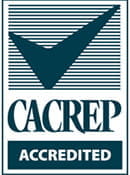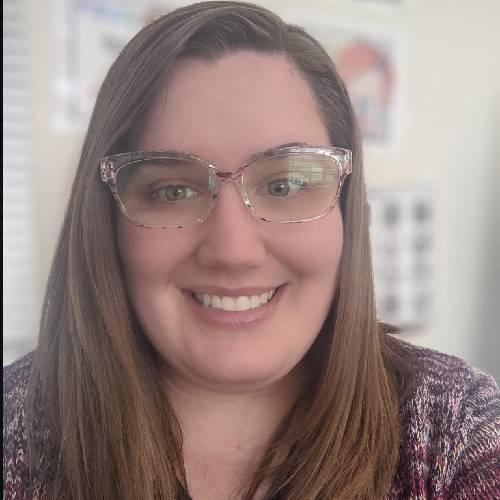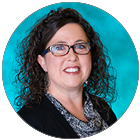Why Choose Walden?
Program Details
Curriculum
Minimum Completion Requirements
- 111 quarter credits
- Foundation course (1 cr.)
- Core courses (95 cr.)
- Field Experience (15–21 Credits. Practicum: 100 hours CMHC; Internship: 600 hours CMHC and 600 hours School Counseling)
- Professional Development Plan, licensure Plan
- 2 Pre-Practicum Labs - 6 weeks online with 4 day synchronous intensive (choose virtual or face-to-face)
- Group Lab (9 weeks online with 10 hours of live synchronous group)
View the COMPLETE CURRICULUM PLAN.
Time to completion will vary by student, depending on individual progress and credits transferred, if applicable. For a personalized estimate of the number of your transfer credits that Walden would accept, call an Enrollment Specialist at 855-646-5286.
International Counseling Honor Society
Omega Zeta—Walden’s chapter of Chi Sigma Iota, the international counseling honor society—offers many ways to get involved and make your voice heard. This includes participating in Learning Communities—biweekly groups of students and faculty who gather to talk about counseling topics such as play therapy, private practice, and telemental health. Learning Communities are one more way to practice your skills, develop your professional school counselor identity, and forge lasting connections with like-minded peers.
Admission Requirements
Program Admission Considerations: A bachelor's degree or higher.
General Admission Requirements: Completed online application and transcripts. Please note that the materials you are required to submit may vary depending on the academic program to which you apply. More information for international applicants.
| Curriculum Component | Requirements | Cost | amount |
|---|---|---|---|
| Tuition | 111 credits of core courses | $515 per quarter hour | $57,165 |
| Pre-Practicum Labs | Two in program | $1,450 each (virtual) $1,550 each (in-person: travel, lodging, and other expenses are additional) | $2,900–$3,100 |
| Program Fee | Per quarter | $175 | $2,800 |
| $62,865–$63,065** | |||
| BELIEVE & ACHIEVE SCHOLARSHIP YOUR TUITION | -$10,300 $52,565* | ||
| Curriculum Component | Requirements | Cost | amount |
|---|---|---|---|
| Tuition | 121 credits of core courses | $515 per quarter hour | $62,315 |
| Pre-Practicum Labs | Two in program | $1,450 each (virtual) $1,550 each (in-person: travel, lodging, and other expenses are additional) | $2,900–$3,100 |
| Program Fee | Per quarter | $175 | $2,975 |
| $68,190–$68,390** | |||
| BELIEVE & ACHIEVE SCHOLARSHIP YOUR TUITION | -$10,300 $57,890* | ||
*Represents specialization, two virtual pre-practicum labs, minimum time to completion, and Believe & Achieve Scholarship. Your actual total program time and costs may vary. Believe & Achieve Scholarship savings based on current tuition. See Scholarship Details for more information.
**Tuition reflects the minimum time to completion. Time to completion varies by student, depending on individual progress and credits transferred, if applicable. Tuition and time to complete may be reduced if transfer credits are accepted, or if you receive grants, scholarships or other tuition reductions. Walden may accept up to 45 transfer credits. For a personalized estimate of the number of your transfer credits that Walden would accept, call an Enrollment Specialist at 844-768-0199.
Tuition and fees are subject to change. Books and materials are not included and may cost up to an additional $4,500.
Program Outcomes
Prepare to pursue licensure or certification as both a mental health counselor and a school counselor.
In our clinical mental health counseling and school counseling dual degree program, you’ll gain the insights and hands-on training to positively impact the lives of children, adults, and families.Walden is one of the few institutions to fully integrate the counseling simulation software Skillsetter into our dual counseling degree curriculum. This technology empowers you to refine your counseling skills through intensive practice, opportunities for reflection, exploration of alternatives, and faculty assistance.
Learning Outcomes
As a graduate of the MS Dual Degree in Clinical Mental Health Counseling and School Counseling program, you will be able to:
- Synthesize counseling knowledge into evidence-based plans for promoting wellness. (Knowledge)
- Construct professional relationships with diverse populations to promote social change. (Skills)
- Develop professional counselor behaviors in various settings to foster growth and wellness. (Dispositions)
- Develop a professional counselor identity relevant to specific practice areas. (Knowledge)
- Evaluate unique client needs within practice areas. (Skills)
- Evaluate community needs in relation to professional settings and populations. (Skills)
Read our MS in Clinical Mental Health Counseling CACREP Vital Statistics Outcomes, the MS in School Counseling CACREP Vital Statistics Outcomes, and the School of Counseling Program Evaluation Outcome Report (PEOR) on the School of Counseling DATA webpage.
Related Articles
You May Also Be Interested In
FAQ About Walden’s Online MS Dual Degree in Clinical Mental Health Counseling and School Counseling
A clinical mental health counseling degree alone doesn’t provide the specialized training to become a school counselor. Walden University’s MS Dual Degree in Clinical Mental Health Counseling and School Counseling program provides streamlined academic training that allows graduates to pursue state licensure as a professional counselor, and licensure or certification as a school counselor.
No. While counseling and psychology both require a foundational knowledge and understanding of human behavior, they are separate disciplines that have their own specialized degree programs.
Graduates from the MS Dual Degree in Clinical Mental Health Counseling and School Counseling are well prepared to pursue state licensure as a professional counselor and licensure or certification as a school counselor. Graduates may also pursue work in agencies, youth detention centers, hospitals, trauma centers, shelters, correctional facilities, community churches, public and private schools, universities, and private practice. Graduates who work in schools can help improve student success by implementing comprehensive school counseling programs that support the academic, personal-social, and career needs of all students. School counselors also provide short-term counseling; collaborate with teachers, families, administrators, and community members to support students; advocate for students and student needs; and analyze data that identifies student needs, concerns, and challenges. Graduates who work in mental health positions provide counseling to individuals of all ages, couples, and families. Mental health counselors also serve as advocates for the mental health needs of their clients and their communities.
Walden’s MS in Clinical Mental Health Counseling and MS in School Counseling programs are both accredited by the Council for the Accreditation of Counseling and Related Educational Programs (CACREP). Although these programs focus on specialty areas within the field of counseling, much of the foundational coursework is identical (i.e., students take the same courses on topics such as counseling theories, techniques of counseling, life span development, assessment, and research). Earning an MS degree in clinical mental health counseling and then returning to pursue an MS degree in school counseling is not always possible due to institutional policies held by universities that restrict students from earning a second degree in a similar field, due to an overlap in coursework. Students may encounter financial aid restrictions as well. CACREP is aware of these complications and has a dual degree policy that allows students to complete two CACREP-accredited master’s-level programs at one time (e.g., dual degree). In order for students to be recognized for earning degrees from CACREP-accredited programs, the organization stipulates that both degrees must be completed concurrently and both must require full internship experiences.1
1Source: https://www.cacrep.org/for-programs/cacrep-policy-document/#policy5.c
Because of institutional policies held by universities that restrict students from earning a second degree in a similar field due to an overlap in coursework, it would be difficult and potentially cost prohibitive to earn these two degrees separately. The best way to obtain two master’s-level degrees from CACREP-accredited programs is to complete them in a dual degree program in adherence with the CACREP dual degree policy. Walden meets the dual degree policy outlined by CACREP.1
1Source: https://www.cacrep.org/for-programs/cacrep-policy-document/#policy5.c
Students who successfully complete two classes a quarter can expect to complete the dual degree in three years and nine months. Students may enroll in three courses each quarter to potentially shorten the duration of the program, as long as their GPA remains a 3.5 or higher.
Yes, both the MS in Clinical Mental Health Counseling and the MS in School Counseling programs are accredited by the Council for the Accreditation of Counseling and Related Educational Programs (CACREP). Additionally, Walden University is accredited by the Higher Learning Commission.
Yes. All of Walden’s programs are online. Walden has been a leader in distance education since 1970.
Students complete core courses, field experiences in both clinical mental health counseling and school counseling, pre-practicum and group labs, optional specialization courses, and more. As a result, graduates earn two MS degrees, are academically prepared to sit for licensure exams, and enter the professional world as a well-rounded job candidate.
1Source: Bureau of Labor Statistics, Occupational Outlook Handbook, Substance Abuse, Behavioral Disorder, and Mental Health Counselors, SOC code 21-1018. Retrieved February 2021. National long-term projections may not reflect local and/or short-term economic or job conditions, do not guarantee actual job growth, and are subject to change.
2Source: Bureau of Labor Statistics, Occupational Outlook Handbook, School and Career Counselors, SOC code 21-1012. Retrieved February 2021. National long-term projections may not reflect local and/or short-term economic or job conditions, do not guarantee actual job growth, and are subject to change.
Note on Licensure
MS in Clinical Mental Health Counseling: Walden University’s MS in Clinical Mental Health Counseling program is accredited by the Council for Accreditation of Counseling and Related Educational Programs (CACREP), a specialized accrediting body recognized by the Council for Higher Education Accreditation (CHEA), which is a requirement for licensure in many states. The MS in Clinical Mental Health Counseling program is designed to prepare graduates to qualify to sit for licensing exams and to meet the academic licensure requirements of many state counseling boards. Because no graduate program can guarantee licensure upon graduation, we encourage students to consult the appropriate agency to determine specific requirements. For more information about licensure, students should visit the National Board for Certified Counselors at www.nbcc.org/stateboardmap, the American Association of State Counseling Boards at www.aascb.org, and contact the appropriate licensing body. International students are encouraged to identify and contact their appropriate licensing body. Learn more about professional licensure.
MS in School Counseling: The MS in School Counseling program is accredited by the Council for Accreditation of Counseling and Related Educational Programs (CACREP), a specialized accrediting body recognized by the Council for Higher Education Accreditation (CHEA), which may also be a requirement to become licensed or certified as a school counselor in some states. In addition, some states require school counselors to have an existing teaching license or certification, and teaching experience, in order to be eligible for a school counseling certification/license. Learn more about professional licensure.
Further, many states require school counseling programs to be approved in at least one state, either their own or another state. The MS in School Counseling program is approved by the states of Minnesota and Ohio, and while this approval is accepted by the majority of states which require state approval, it may not be accepted by all states.
Walden is not approved to offer the School Counseling degree in Arkansas, Iowa, Kentucky, Massachusetts, New Mexico, or Tennessee, so if you reside in one of these states, you will not be eligible for the dual degree.















